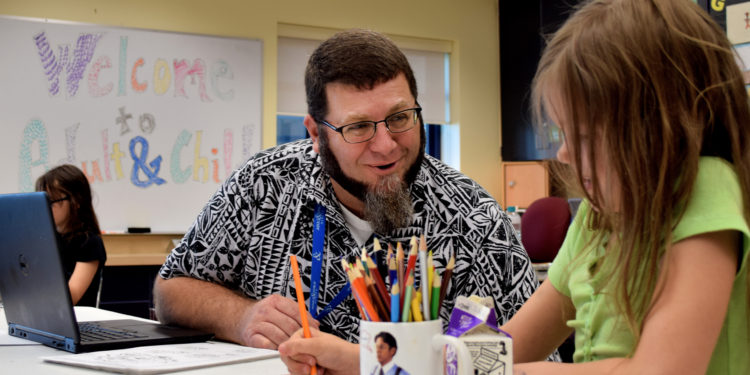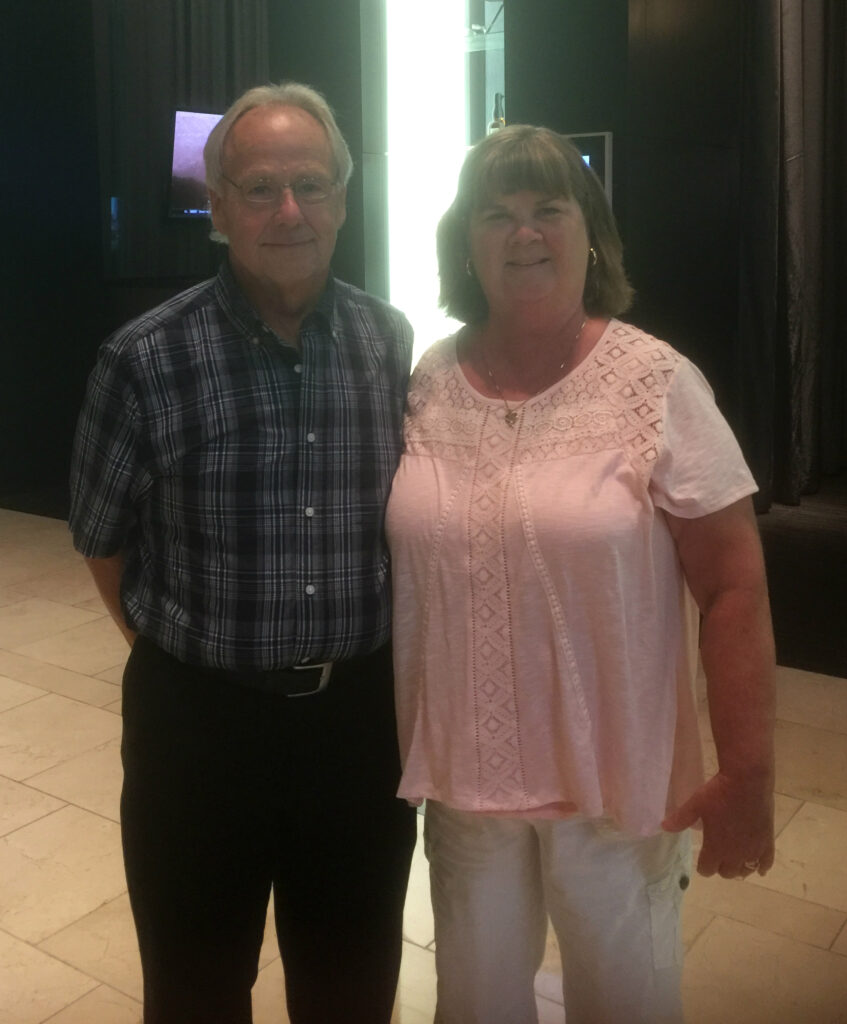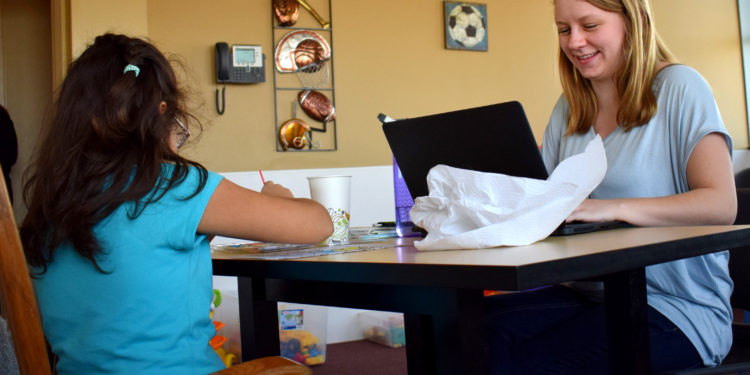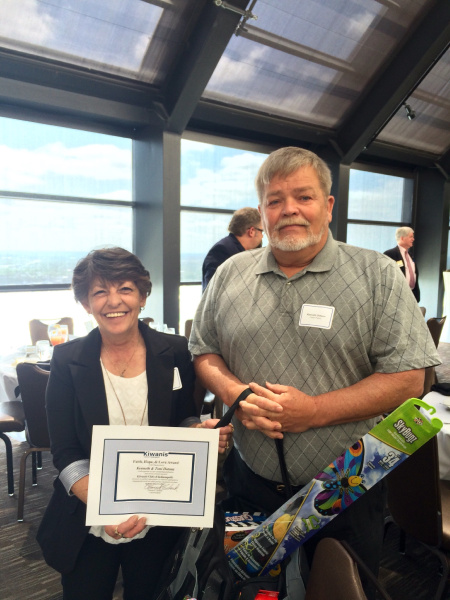A&C School Based Team Philosophy

The philosophy of School Based is simple: problem kids are not bad kids, they’re kids who simply need more support. This is the very sentiment Skills Development Specialist Chad Ridge tries to embody daily as he winds through the halls of Grassy Creek Elementary throwing out high fives to children passing in lines and advice to ‘make better choices’ to those working at ‘time out desks’ in the hallway. As a Skills Development Specialist, Chad has a unique but oft necessary position in the school. He helps kids on his caseload work through issues such as ADHD, Oppositional Defiant Disorder, a tendency to flee, a tendency to hit. Therapists on the team do the hard, emotional work with the kids one-on-one to help them address what they feel and why they feel it. Skills Development Specialists (SDS) work with the kids on their actions and how to make better behavioral choices, both in one-on-one sessions and in the classroom. “You kind of have to play a little dance with your caseload,” said Chad, referencing the relatively unstructured day-to-day operations of a Skills Development Specialist. There are a certain number of meetings they must have with their clients per week depending on their level of need, but the landscape always seems to be changing. The caseload rotates slowly, but teachers have different preferences, schedules for extra activities blend and shift, a client may have an outburst in the morning, or an emergency might pop up in the afternoon. Chad manages by staying flexible and spending his day weaving in and out of classrooms, talking with teachers and dropping in on clients to assess the needs of the day. “You have to feel out who needs what at what time and adjust accordingly.” Kids usually end up on the School Based caseload through a teacher recommendation. Teachers approach parents about working with Adult and Child to help their child tackle behavioral issues. Often the option is discussed when working out Individualized Education Plans. When a child is added to the caseload, a team will take around 30 days to really get to know them. They asses the child’s struggles and develop an individually tailored plan with goals to work on. This happens through classroom observation, discussions with parents and teachers, and familiarizing the child with the School Based team. After 30 days, the SDS will confer about their findings with a psychologist who will provide their own feedback, and then the intensive work begins. SDSs will often work through storybook-type models that encourage children to examine their own behavior. Titles like “Jake the Frog Settles Down” and “Hunter and His Amazing Remote Control” are designed to illustrate what it looks like to use self behavior modification skills through the example of cheerful cartoon characters. An SDS will also spend time with their clients in the classroom, physically sitting beside them and helping to navigate different types of stimulation, distraction, emotions, etc. One other important piece of the School Based puzzle is parent interaction. When parents sign up their child, they also sign up themselves. Chad says that he usually meets with parents twice a month both to discuss their child’s progress and to involve them in the curriculum. “My work with parents and their children looks a lot like play,” said Chad. He says he often plays games to model and facilitate new types of parent-child interaction individualized to the child’s struggles. “If parents are on board and they’re actively involved in the child’s therapy or skills, then it goes a lot smoother and you move a lot faster toward a graduation or resolution.” The ultimate goal of School Based is graduation from the program. Once a child is consistently meeting their goals with less and less support from the team, that’s when it’s time to transition them out of the program. Chad has worked in School Based for over a decade and has seen so many kids work through their behavioral problems and function well in school. “School Based works,” he said simply. “We’re there for the kids when they need us.” Supplying that line of defense helps children who might otherwise escalate their behavior so much that it leads to expulsion, a consequence where nobody’s happy and nobody’s learning. But with School Based interaction, Chad has seen that happen much less frequently, a factor that drives his passion for working with kids. “I wouldn’t work anywhere else,” he said, “I love it to pieces.”
A&C Foster Parents Honored With FFTA Scholarship

Longtime Adult & Child Health foster parents Ivan and Elaine Burton were honored this week to attend The Foster Family-based Treatment Association’s 30th Annual Conference on Treatment Foster Care on a special scholarship. The conference—held in New Orleans and attended by more than 600 family-based service professionals and foster parents—featured over 90 workshops highlighting best practices being applied in the field today. Nominated by our staff for their outstanding commitment to fostering and dedication to the children and families they serve, the Burtons have maintained a high standard of excellence for the entirety of their 12 years with our organization. Consistently up to date on all required training and documentation, Ivan and Elaine have often gone above and beyond in identifying and acting on opportunities to better meet the therapeutic needs of the children in their care. They have been active community advocates for our agency and for foster care in general—building strong relationships with biological parents and fellow foster parents alike, and inspiring many more to become licensed themselves. Most importantly, they have shown an unwavering dedication to putting the needs of the children above all else by taking the time to learn as much as possible about every individual in their care, providing them each with ongoing guidance and support designed to assist in achieving both short and long term success. Congratulations to Ivan and Elaine on a well-deserved honor!
A&C Foster Care Team

In the wide scope of Adult and Child, at times it can seem that the Therapeutic Foster Care team exists its own bubble. The team has a separate brand and a separate website and answers to an outside entity (DCS). But in reality, foster care is deeply intertwined with several other service lines, from home-based services working with biological families to primary care looking after children’s medical needs. Housed on the seventh floor of 603 E Washington St, the TFC team is fortunate to have such easy access to various other A&C service lines. In Indianapolis, there are around eight foster care agencies, but Adult & Child is the most comprehensive. “Most agencies have to refer out for services, but A&C can literally take care of all that under the same roof,” said Alicia Harding, a TFC team leader. This type of open communication is often a resource for getting quick answers to questions or being able to streamline care for children with trauma and/or other health problems. The integrated care aspect and novelty of child therapy can be a draw for prospective foster parents looking for a support system when embracing such a challenging role. TFC is always working to keep its foster parents afloat in uncertain waters. “As an agency we really are striving to support and work with foster parents in an ongoing process, to work hand in hand for the benefit of the child,” said Amanda Vipperman, licensing specialist and team leader. Amanda also keeps track of much of the data on how many foster parents are coming into the agency. Currently, there is an average of 10 new inquiries a month from prospective foster parents and an average of two certifications per month. Alicia Harding commented on the disparity of these numbers: “It is a long process and it feels very invasive at times… You do feel vulnerable throughout the process and I don’t think a lot of people like to feel vulnerable.” In this process, foster parents must go through background checks and be prepared to discuss in great detail: their finances, their home life, their relationship, etc. It also takes a lot of effort and time to become a licensed foster parent. The entire paperwork and interviewing process alone takes roughly 20 hours. But at its heart, all these hurdles are in place to make absolutely sure that the home is a stable and safe environment for children. Through the process, the TFC team tries very hard to make sure prospective foster parents feel comfortable and supported in an attempt to keep them moving toward their goal. “There is a huge, huge need for foster parents right now for kids in our community,” said team leader Jodi Kelley, referencing the fact that there are currently more foster kids than there are homes to put them in. There has been a push from the agency to spread this message and to encourage people in the community to reach out for more information if they have ever considered fostering. Being a foster parent can be a wonderful and life-enriching experience for many, but there are darker realities that prospective parents should prepare for when looking into the process. Many people come to fostering with the desire to give back and help a child, “but what they don’t realize is that it takes a lot of working with what feels like a broken system,” said Alicia. “And it’s never going to be a perfect system when you take a child and traumatize them further by removing them from the only home they know.” She noted that to make the best of it and stay positive, foster parents must also practice self-care and to not take themselves too seriously. She notes that foster care looks different for everyone and it’s so important to be adaptable. “It’s hitting a moving target always, but it can definitely be done.”
A&C Foster Parents Receive Kiwanis Foundation’s ‘Faith, Hope, & Love’ Award

Congratulations to Adult & Child foster parents Kenneth and Toni Dotson, who were honored May 13 at the Kiwanis Club of Indianapolis‘ annual Foster Parent Recognition Luncheon! Nominated by our staff for their exemplary history as foster parents, the Dotsons were one of five in the Greater Indianapolis area to receive a ‘Faith, Hope, & Love’ Award as Foster Parents of the Year. With more than five years of outstanding service, Kenneth and Toni have proven time and again that the best interests of every child in their care is their number one priority. They have fostered children of varying ages, genders, and levels of need, and have made each of them feel at home while helping them flourish in their care. They take the difficult job of fostering very seriously—staying up to date on all required training and paperwork—but have also shown an ability to roll with the punches and to connect with a variety of service providers and A&C staff. Lastly, they both have a great sense of humor!



